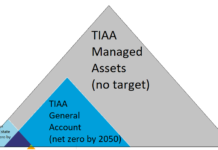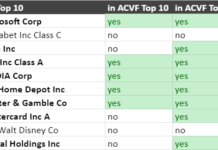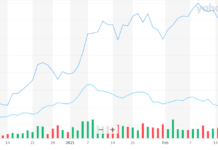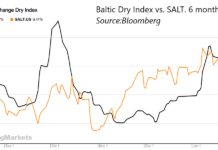Because I’m currently studying for the second (of three) CFA® exam, I’m going to take a break from my usual article analyzing some aspect of alternative energy. This week and next, I’ll take a step back and try to answer an existential question: How can I possibly hope to beat the market, when "the market" consists of professional money managers with resources far exceeding my own? Every active investor should ask themselves this question: the answer will either make you a better investor, or save you a lot of time and money if you are humble enough to realize that you’re like the majority of mutual fund managers who would be better off not trying, and should be indexing their portfolios instead.
Beating the Market
Is it possible to beat the market? The unequivocal answer is "Yes:" no matter how many economists say "the market is efficient" it’s only the existence of smart money managers out there who find mispricings and exploit them that keep the market as nearly efficient as it is. Market efficiency requires that there be money managers who can detect mispricings and take advantage of them. The abnormal returns (or Alpha) they make by so doing are their wages for making the market more efficient for everyone else.
Because of the thousands of highly trained analysts out there, constantly looking for and exploiting mispricings ("capturing Alpha") in the stock market, I know that if I buy an index fund and keep my costs low, I’ll probably outperform a majority of actively managed mutual funds, after fees.
Unfortunately, the fact that some managers do consistently outperform over the long term is of little comfort to the small investor who is hoping to beat the market himself. After all, institutional money managers (mutual funds, investment banks, hedge funds, etc.) possess resources that the individual investor can only dream of: teams of analysts to read through the footnotes of GE’s 10-K’s and annual reports line-by-line, who understand the difference between a capitalized lease and the Capital Asset Pricing Model (CAPM). Quant hedge funds have supercomputers which can do technical analysis of 5,000 stocks in the blink of an eye, and recognize a head-and-shoulders top formation faster than you can say "dead-cat bounce."
Can a small investor or money manager who can’t pay a team of analysts or computer programmers to do market analysis have a chance of finding some mispricings? It’s generally accepted that, at any given time, there is only a finite amount of profit to be made by identifying and exploiting mispricings in the market. Put another way, there is only a finite amount of Alpha to go around in any one market. On the other hand, there must be some Alpha available in any financial market: according to the Arbitrage Pricing Theory (a much more general and realistic version of CAPM), it is the successful active managers who make markets efficient, and they make profits by doing it.
It’s my belief that small investors and money managers can beat the market, and institutional managers. We can do this by understanding the competition, and exploiting their weaknesses, or just avoiding the competition altogether. Active portfolio management is a game that can be played as many ways as there are active portfolio managers, but large portfolio managers are shaped by who they are and the nature of the money they manage.
Number Crunchers and Alchemists
We are primarily concerned with big, actively managed pools of money. They could be actively managed mutual funds, pension funds, endowments, or hedge funds. By definition, index investors do not trying to capture Alpha, and so they do not reduce the amount available for other investors.
How do active managers go about finding mispricings to exploit?. They are either highly trained analysts, such as CFA® Charterholders, or brilliant individuals or teams like Warren Buffett or George Soros who have the right combination of skills, insight, and emotional outlook to be one step ahead of the market most of the time. Most CFA® Charterholders will try to beat the market by superior analysis: they patiently gather all the available information about a company, make adjustments to financial statements to make the information more meaningful, and use that information to project future earnings, cash flows, or dividends into the future to come up with a valuation of a company: that is what the curriculum teaches. If the market price of the security is significantly under-(over-)priced, their fund will buy (or sell) the security in question. Warren Buffett follows a similar procedure (I highly recommend Robert Hagstrom’s book The Warren Buffett Way.)I consider this approach "number crunching": gather data, analyze carefully, and take action.
Investors like George Soros, on the other hand, practices what he terms Alchemy of Finance (see link to his book of the same name). He looks for the trends under the market that the numbers hide from us: the forest, rather than the trees. More recently, this sort of financial alchemy is being explored by academics and market participants alike in the form of Behavioral Finance: the art of understanding how our emotions and ingrained biases lead us to make bad decisions in the market. Investors and traders who, like Soros, can see those biases in themselves and others can capture entirely different forms of Alpha that simply are not visible to pure number crunchers.
I am only implicitly addressing the discipline of technical analysis (as opposed to fundamental analysis) but I feel that it also breaks down into number crunching and alchemy. Number crunching technical analysis uses computers to analyze stock charts to detect and exploit formations as the evolve with sophisticated statistical analysis. This approach has actually been statistically valid
ated by Lo and MacKinlay in their cleverly-titled A Non-Random Walk Down Wall Street (I don’t recommend this one unless you like reading statistics for fun; it’s quite a tome… If you want to read more, start with this article on TraderFeed.) The alchemists of technical analysis are people like Richard Russell, who look at a chart and have an instinct for how it will evolve. I think this is the way most successful day traders operate; I expect that number-crunching technical analysis is dominated by hedge funds, who can afford the computing power and programmers it requires.
My classification of active managers into number crunchers and alchemists is not strict. Successful investors most likely do some of both, and one skill set is invaluable in informing the other (which is why I’m studying for the CFA® exam.) As the curriculum frequently emphasizes, good analysis requires judgment, and knowledge of the weaknesses of the method you are applying. However, I believe that the number crunchers vastly outnumber the alchemists, and that the judgment that the CFA® curriculum attempts to instill is likely the hardest part of the curriculum to learn. Judgment is also extremely hard to test, and while the CFA® exams are very comprehensive and require considerable study, most of what they test (in my experience so far) is numerical methods, not judgment. Additionally, the Chartered Financial Analyst® designation is an elite designation (how many people have time for 200+ hours of study each year for a minimum of three years?), and I’m constantly impressed by the emphasis placed on individual judgment and the weaknesses inherent in the models taught. The majority of people who describe themselves as "stock analysts" or "portfolio managers" do not have the CFA® designation, and probably have not had so much emphasis placed on the inherent weaknesses of analytical models. (I did a quick, unscientific check on the prevalence of the designation by searching LinkedIn: only about 10% of the people who have the words "stock analyst," "investment analyst," or "portfolio manager" in their profiles also mention the CFA® designation, and a good number of those, like myself, are CFA® candidates.)
I think the availability of enormous computing power compounds the number-crunching trend: when you have a hammer, every problem looks like a nail. Add the fact that the skills of a number cruncher are much easier to evaluate and put on a resume, and large institutions with money to manage are more likely to hire people with these skills.
If we wind up with far more money being managed by market number crunchers than by alchemists, it follows that there will be a lot more unexploited alchemy-exploitable Alpha than number-crunching exploitable Alpha. The small investor, with limited time and resources to hunt for Alpha, should hunt where there are fewer hunters, and exploit the weaknesses inherent in large pools of money managed by number crunchers.
Weaknesses of Large (number crunching) Money Managers
What are the weaknesses small investors should try to exploit? Here are some I see:
- Too Much Money: Because they have so much money, the can only trade very liquid securities.
- Agency problem: A manager’s strongest incentive is often to keep his job, not to make as much money as possible.
- Analysis paralysis: Too much modeling, not enough judgment.
- Historic bias: all data is historic data, but we are trying to predict the future.
- Benchmarking: the goal is often to beat a benchmark, not make money.
- Inflexible mandates: many managers don’t have much choice about the type of securities they invest in.
Next week, I’ll go into some detail about how I try to take advantage of them.
DISCLAIMER: The information and trades provided here are for informational purposes only and are not a solicitation to buy or sell securities. Investing involves substantial risk and you should evaluate your own risk levels before you make any investment. Past results are not an indication of future performance. Please take the time to read the full disclaimer here.









It is hard to detached emotions from trading since we use our emotions in almost any other aspect of life. That is why technical analysis is so popular.
I agree that maintaining detached emotions when trading is *very* hard. That’s why, if you can do it, there is money to be made. As for technical analysis, it won’t work either unless you rule your emotions rather than vice-versa. I believe that the patterns technical analysts exploit are *caused* by the predictability of our emotions.